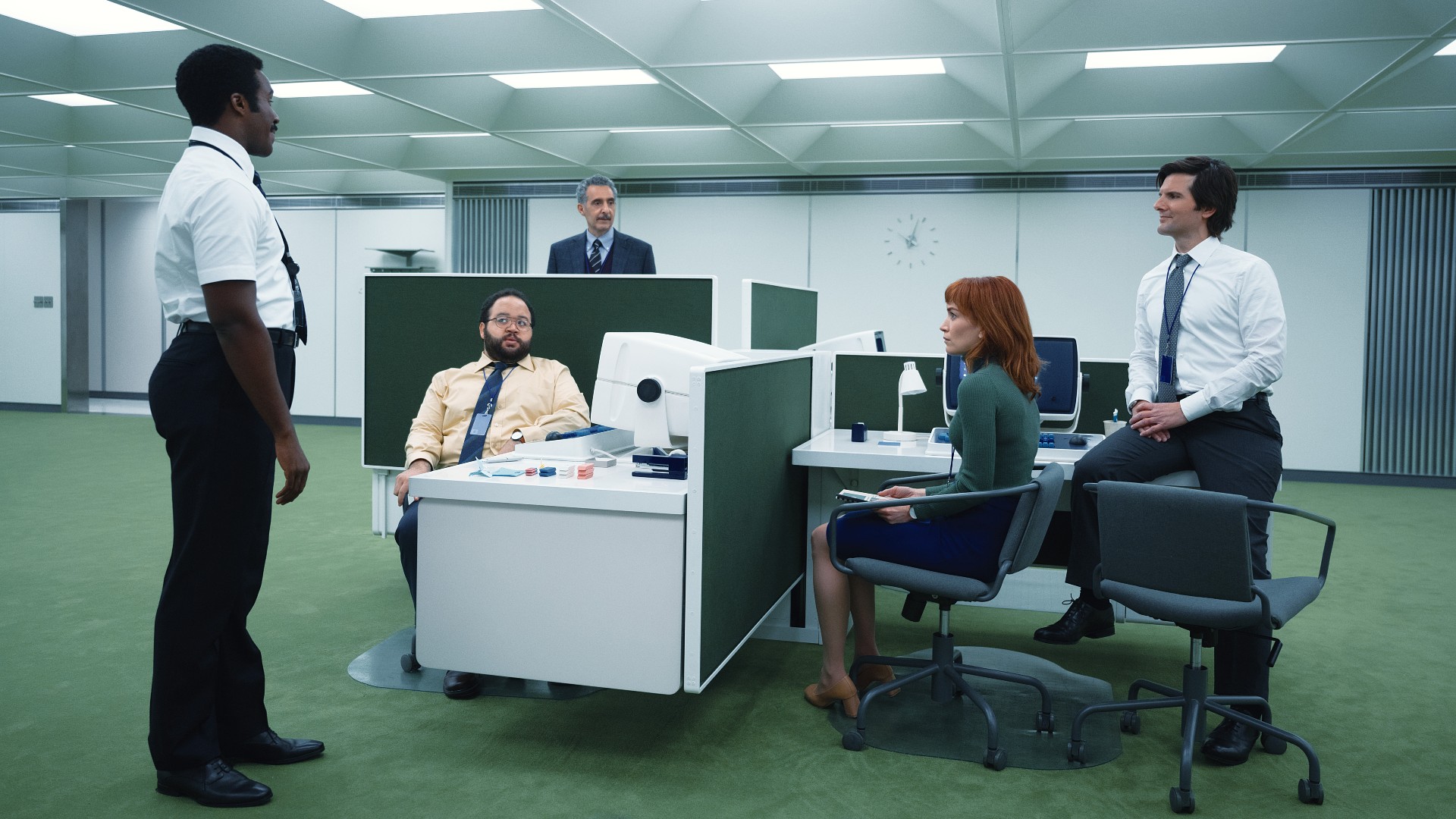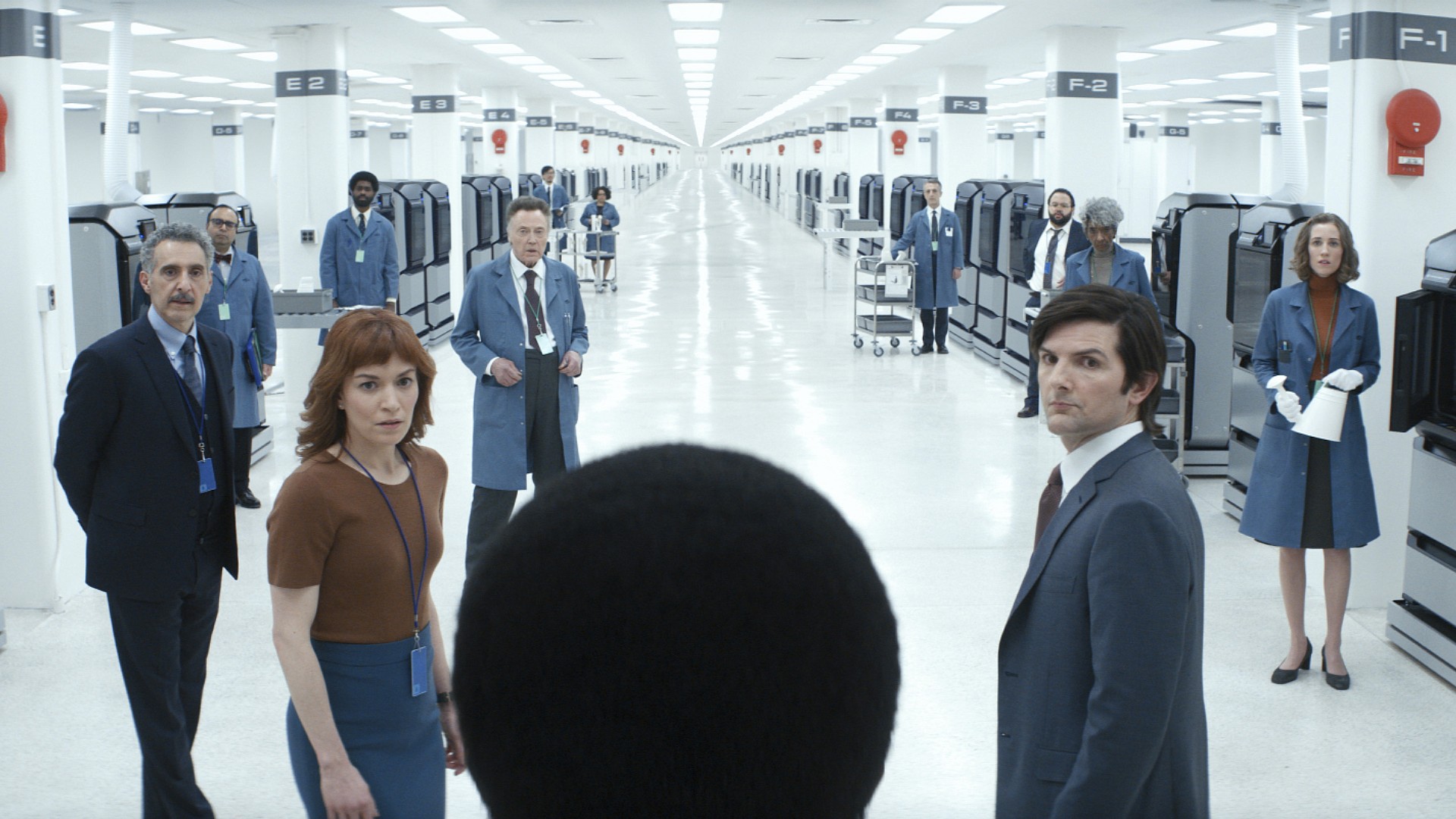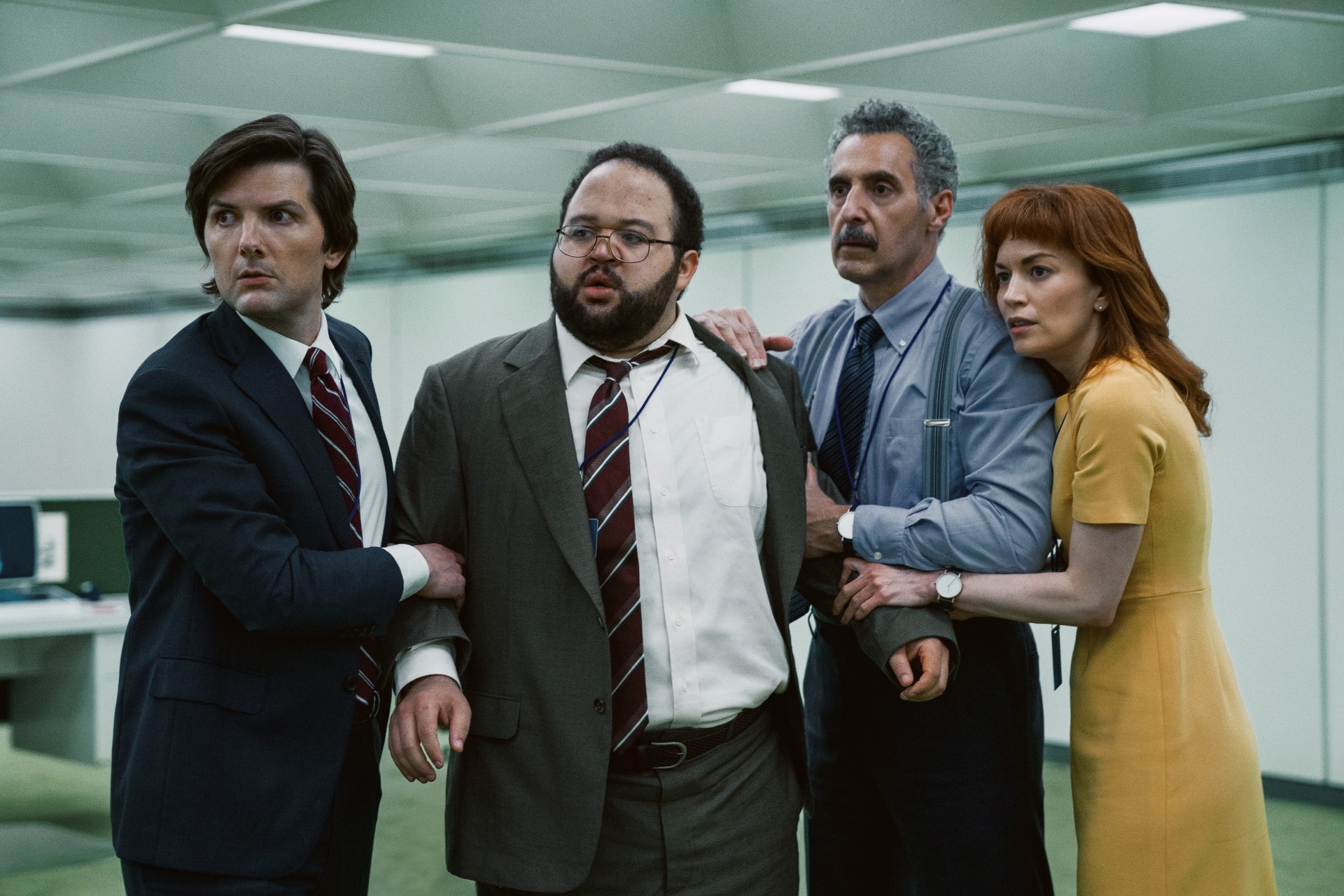Why Severance is our pick for the best TV show of 2022
Severance beat out Andor, House of the Dragon, and more to be named our favorite series of 2022
It's not too often that a TV show comes along and turns your life upside down –if only for 45 ad-free minutes. Moments ago you were laughing, maybe even tearing up a bit, and now you're lying awake in your bed reevaluating the reasons you get up in the morning, the things you love most in this world. That's the power of Severance, a psychological sci-fi thriller from the mind of Dan Erickson.
Disguised as a dystopian workplace drama a la The Twilight Zone meets The Office, Severance is an anti-capitalist love letter to the mundane things that make us human. It's unlike anything we've ever seen, and that's what makes it Total Film's Best TV Show of 2022.
A handshake is available upon request

If you had the chance to split your work life and home life into two completely separate universes, where one version of you doesn't even know about the other, would you? Sounds crazy, but it makes sense for Mark S. (Adam Scott). After finding himself unable to cope with his wife's death, Mark takes a job at Lumon, a corporation known for a controversial procedure that allows a person to 'sever' their work self from their regular self. This creates a paradox, one where your "innie" and "outie" exist as two entirely different creatures who live separate lives, have separate memories, and know virtually knowing about one another.
Parallelism is the driving factor in this series: while the "innies" work silently and obediently at their desks on Lumon's 'Severed' floor, the "outies" loudly protest, picket signs and all, the practice's ethical nature. The people in Mark's 'real' life don't understand his decision, and are anything but subtle about their confusion and disapproval. "It’s really been helping me," he says early on. And it's not until we're a few episodes in that we realize exactly why Mark chose to get severed. He gives up his own bodily autonomy in exchange for relief from the unbearable pain of loss. Little does he know, the "innie" version of himself is miserable, just for a completely different reason.
While we don't immediately learn why Mark's coworkers, Dylan G. (Zach Cherry), Irving (John Turturro), and Helly R. (Britt Lower), chose to get severed, they ultimately become united by the shared misery they experience inside of Lumon's walls. The gap between the innie and the outie starts to close. There's a glitch in the matrix. Suddenly, the innies want out. They want to experience what their outies experience: they want a life of their own.
Let's burn this place to the ground

It isn't all bad: Lumon employees get to have waffle parties and jazz dance breaks complete with rainbow ceiling lights. If they're lucky, they get to go to see Ms. Casey (Dichen Lachman), the wellness counselor, who reads them a list of the best very traits about their outie. Good, complacent behavior is rewarded with gleeful absurdity, while 'bad' behavior is rewarded with a legalized form of torture that includes repeating self-deprecating, dehumanizing words over and over again until the person in charge believes that you sound 'sorry enough.' In a way, it's a metaphor for the modern worker, for the competitive capitalistic dogma that propels American culture. We live to work, and then what?
Patricia Arquette delivers an outstanding performance as Harmony Cobel, Mark's boss who, interestingly enough isn't just cruel and cold because she's in a position of power. No, Harmony's passion comes from her undying devotion to Kier Eagan, Lumon's late founder. It's her blind devotion to this so-called brilliant man that makes her one of the spookiest TV villains I've seen in years. The cult-like devotion to Kier, from the paintings and sculptures and creepy recordings to the literal 'Praise Kier!' mantra uttered by upper management, is never really questioned throughout the series. Even in death his presence looms over us, adding to that nagging feeling that something is very, very wrong in that office building.
Sign up for the Total Film Newsletter
Bringing all the latest movie news, features, and reviews to your inbox
Our show of the year

Sure, Severance is a psychological horror masquerading as an even darker Office Space, but it's also an absolutely beautiful, heartbreaking story about what it means to be content. We're not supposed to have it all figured out, and we're not supposed to throw away our emotions, either. We are beautiful and boring and flawed and we're allowed to be all of those things all of the time. As the series goes on, Mark doesn't get better. The hours he spends forgetting about his wife don't help him heal in the real world, and there's an incredibly sad scene where gets drunk and rips up her photo – the one he looks at all the time – in front of his date, in order to "prove" that he’s "over her." The severance process is a pretty distraction to those on the outside, to the kind of people who desperately want a break from themselves, and in reality, it's poison.
Are you missing something? Severance wants you to look inside of yourself, find out what that something is, and fight for it. It wants you to be yourself, whoever you are, no matter how much you're hurting or what kind of person you think you are. At the end of the day, all we have is ourselves, our own bodily autonomy, our own wants and needs. The series asks us to sit with ourselves, to sit there silently in the discomfort, and feel all of it at once.
For more, check out our list of the best TV shows of the decade, or, check our list of the best TV shows of all time.

Lauren Milici is a Senior Entertainment Writer for GamesRadar+ currently based in the Midwest. She previously reported on breaking news for The Independent's Indy100 and created TV and film listicles for Ranker. Her work has been published in Fandom, Nerdist, Paste Magazine, Vulture, PopSugar, Fangoria, and more.


